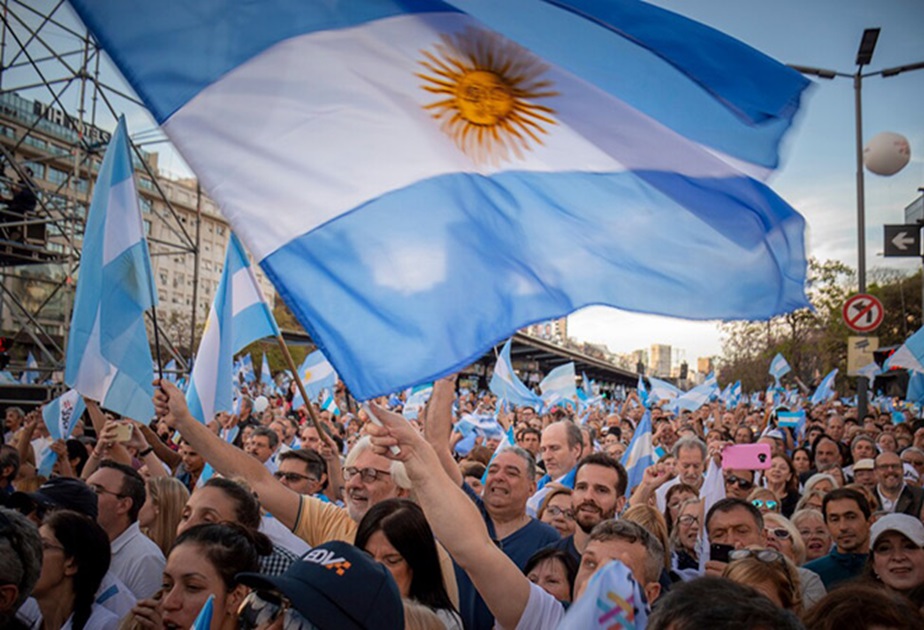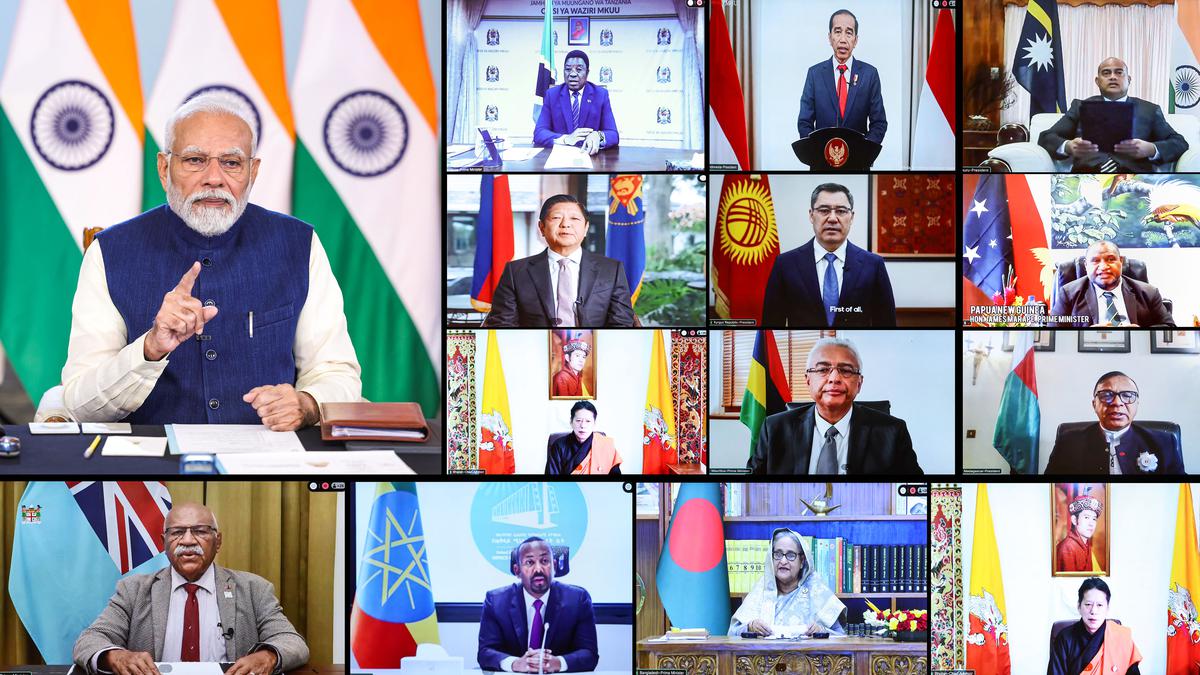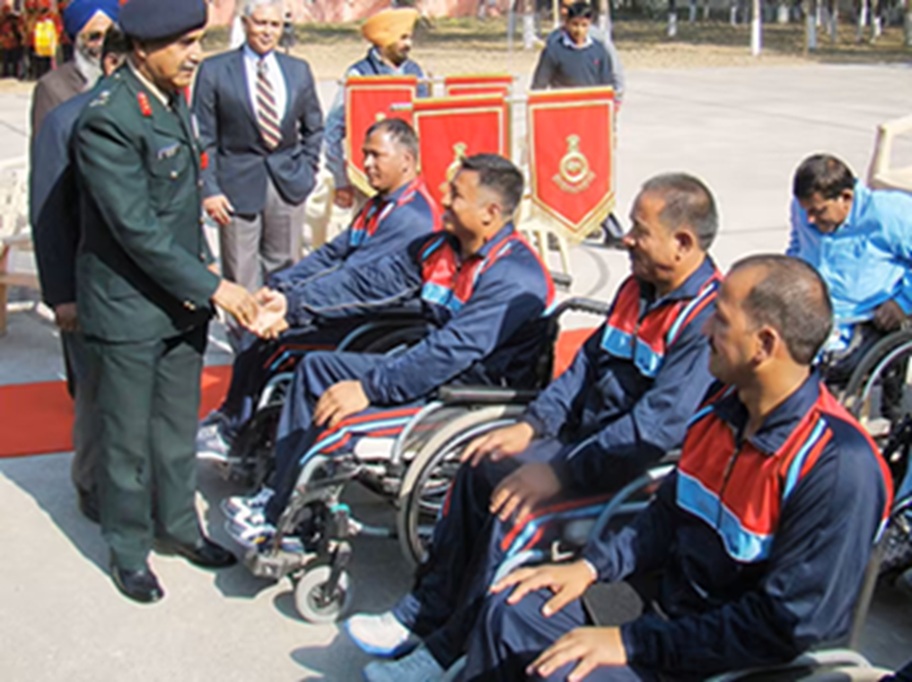After a surprising general election, Argentina is struggling between opposing political parties. What happened, what can happen next and what are the implications of Argentina´s election in the international arena?
Argentina’s election year keeps delivering surprises: Sergio Massa, candidate of the ruling party (Peronist, centre-left) and current Minister of Economy, won the 22 October election with 36.6% of the total vote. Now he is in a good position to prevail in the run-off vote on 19 November, despite managing an economy with 140% annual inflation.
Most pollsters’ predictions failed, once again, as they envisioned Javier Milei, the outsider candidate for La Libertad Avanza (libertarian right), as the most likely winner. However, the extreme libertarian candidate got only 29.98% of the votes, the same amount as in the primary election.
The picture was completed with the failure of Patricia Bullrich and Juntos por el Cambio (centre right). The alliance between PRO, the party of former president Mauricio Macri, and the centenarian Unión Cívica Radical had finished second in the primaries with 28% of the votes, but in the general elections, weakened by internal conflicts and without an attractive electoral discourse, it only managed to reach 23.83%. In consequence, JxC was left out of any competition and its continuity as an alliance is in danger, falling from being in government between 2015 and 2019 to being the third force in 2023.
For a better understanding, it is necessary to clarify that Argentina has a three-tier electoral system. The first is the open, simultaneous, and mandatory primaries (PASO, for its abbreviation in Spanish) where each political coalition decides its official candidate in front of the general electorate. In the second instance, called “general elections”, the winning candidates of the primaries of their respective coalitions compete. The candidate who reaches 45% of the votes or 40% with at least 10 points of difference with the second is consecrated president. Finally, in the event that no candidate obtains those votes, as happened last Sunday, the last electoral instance is a ballotage between the two most voted candidates of the general elections.
Before turning to the third stage of this presidential election, it is necessary to try to understand some questions.
What Happened Between the PASO and the General Election?
Patricia Bullrich, who seemed to be JxC’s strong and combative option against the current government, was trapped in a kind of ideological sandwich. Javier Milei captured the most fierce and right-wing votes, while Massa managed to appeal to the more moderate electorate more effectively, despite the economic crisis that has placed him as the visible face for more than a year.
Moreover, the alliance was unable to contain the votes of Horacio Rodríguez Larreta (who lost the primaries within JxC), which are estimated to have gone to Massa himself, including Milei, but above all to the governor of the province of Córdoba, Juan Schiaretti, leader of Hacemos por Nuestro País. Schiaretti had an outstanding participation in the presidential debates and managed to double the votes obtained in the PASO (3.71%) for these general elections (6.78%), where there was a greater influx of votes.
In the primary elections, 24,935,583 people voted (70.43% of the total number of eligible voters), while in the general elections, 27,100,675 (77.65%) went to the polls. These new voters turned mainly to the candidate Sergio Massa, who added almost 3 million more votes between one instance and the other, and to Schiaretti, who gained almost one million votes. For his side, Javier Milei did not even manage to attract 500,000 more votes, while JxC as an alliance lost more than 600,000 votes.
What Could Happen in The Run-off?
The fight is now over who will seduce the voters of the other three forces that took part in the general election. Leaders from JxC have started to announce their support to one candidate or abstention, even if the opinion of leaders does not that those votes will go to the appointed side.
In the first place, JxC is publicly debating what to do in front of its voters. Former president Mauricio Macri together with Patricia Bullrich decided to close a deal with Javier Milei quickly without consulting their partners in the Unión Cívica Radical, nor other minor parties that make up the alliance, nor the PRO members themselves. Does this mean that the more than 6 million votes that Patricia Bullrich got are “transferred” to Milei? Not at all. Although Macri’s support and the formation of an anti-Kirchnerist or anti-Peronist alliance could be attractive for part of the population disenchanted with the current government.
It is uncertain what will happen with this flow of votes, although it can be foreseen that the majority of the votes will end up with Javier Milei. At the same time, part of the electorate may lose their intention to vote in the run-off, having to choose between a leap into the void and the continuation of corruption, as some of those in this sector have said, which translates into a lower voter turnout on election day or a rise in the number of blank or null ballots at the polling stations.
The second important space is the one led by Juan Schiaretti, who, with a provincial approach, managed to capitalise on many votes in the interior of the country and in specifically productive areas such as the province of Córdoba itself or neighbouring Santa Fe. It is not clear how he will be defined, but what is certain is that his more than 7% share is worth gold in the run-up to the ballot. It can be expected that his voters will be evenly divided between Massa and Milei. Massa for sharing Peronist roots and bringing together the “fear” of the possibility of a Milei president. To La Libertad Avanza for the promise of zero retention for agriculture, in an area with many interests in the sector.
In third place is the left, which polled just under 3% of the vote in the general election. Their ideals are the opposite of Milei’s, but they do not quite trust Massa as a voteable candidate. The forecasts indicate that part of their votes will go towards a blank vote or not participating, while the majority will go to Massa, although the left leaders have already publicly stated their neutrality towards this ballot.
In his victorious speech at the general elections, Sergio Massa called for a government of national unity, in which he seeks to incorporate leaders and support from the entire political spectrum, even from his toughest opposition. The biggest challenge ahead of him is to lead a badly wounded economy until November: bank runs, lack of medical supplies, and rationalisation of petrol are on the menu.
Massa’s greatest electoral capital is that he has managed to put the most visible Kirchnerist referents, Cristina Fernández and her son Máximo, in the background, which could help this search for unity among other parties. He also has the important support of various provincial governors.
The electoral performance of Axel Kicillof in the province of Buenos Aires, who won re-election by a wide margin, was no small boost to Massa’s victory in the presidential elections. The problem is that the governors and mayors do not now have the motivation of their own candidacies to mobilise for the ballot. It will be up to Massa to get the commitment of thousands of civil servants in provinces with dissimilar realities and hit by the ups and downs of the national economy.
Impact on the International Economy
If Massa wins, it is likely that Argentina will maintain its membership of the BRICS, which was announced during Alberto Fernández’s current term in office. It remains to be seen how Massa’s very good relations with the United States will play out, where, for example, he has an affinity with Rudolph Giuliani, former mayor of New York and now Donald Trump’s lawyer.
In the event that Milei wins, he is expected not only to withdraw from the BRICS but also to focus his foreign policy on the Western axis, aligning himself strongly with the United States and Israel (he promised to move the embassy from Tel Aviv to Jerusalem) and leaving aside other powers such as China, for example.
With regard to the International Monetary Fund (IMF), Argentina’s main creditor, it would seem that they look favourably at the continuity of Sergio Massa as leader of the ship. These types of entities do not usually rely on outsiders or people with no political track record. With Massa, they will be able to continue the dialogue (despite certain breaches on behalf of the current Minister of Economy) in order not to cut off Argentina’s debt payments. It would not be a problem for Milei to deal with the IMF if he manages to involve economists linked to Mauricio Macri, who is already known to the Fund. Previous meetings held by Milei’s team with the IMF failed to send good signals in Washington.
Another issue that arises because of its international impact is the development of oil & gas production in the fields known as Vaca Muerta. In terms of the development of Vaca Muerta, both candidates, of course, are in favour of the participation of international companies and giving them facilities for their investments there. The difference arises in the role of the state oil company YPF. Massa would rely on YPF to promote the development of Vaca Muerta, where the company already has agreements, for example, with the Malaysian state-owned Petronas. Milei, for his part, speaks of “privatising Vaca Muerta”, which is not very clear what it means but is surely related to the privatisation of YPF and its assets, something already carried out during the government of Carlos Menem in the 1990s.
Argentina has just a few weeks to decide who will be the future president to guide the nation’s course for the next four years. The options are starkly opposed and what is certain is that the next leader will face an economy in crisis and a divided nation. Even so, the future could be promising for a country that has been hard hit but with concrete possibilities for development.
Disclaimer: The views and opinions expressed by the author do not necessarily reflect the views of the Government of India and Defence Research and Studies
Title image courtesy: ORF





